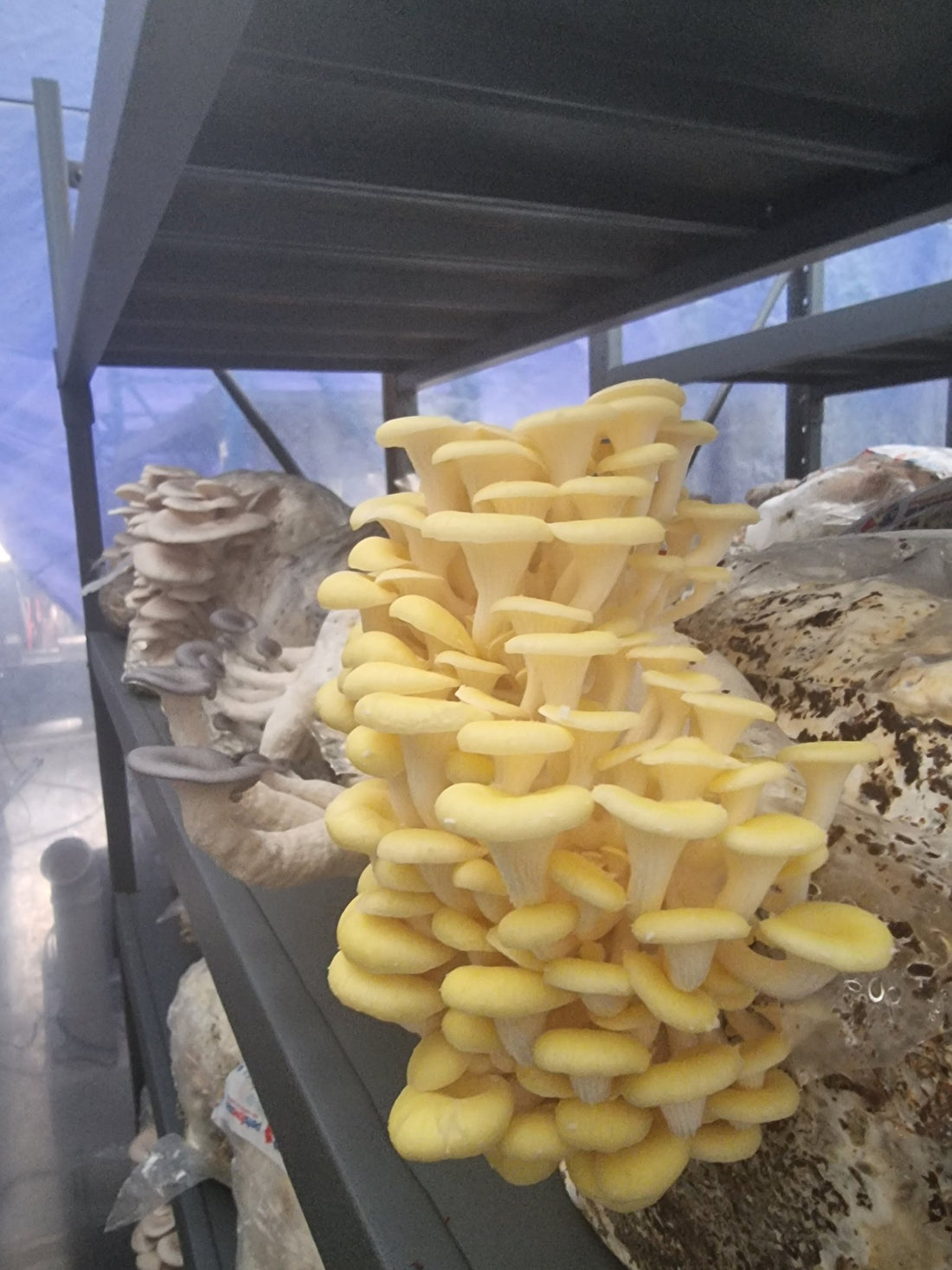Organic mushrooms have gained popularity in recent years due to their potential health benefits and environmental sustainability. But what does "organic" really mean, and why should you consider buying organic mushrooms?
In this article, we will explore the meaning of organic, the reasons why buying organic mushrooms matters, and the specific advantages they offer.
Let's dive in!
What Does "Organic" Really Mean?
When we talk about organic produce, including mushrooms, we are referring to products that are grown using organic farming practices.
These practices involve minimizing ecological impact and reducing the use of artificial chemicals in crop production.
Various countries, including Australia, have implemented regulations and certification processes to ensure the authenticity and quality of organic products.
The term "organic" is categorized into four types:
- 100% Organic: This category includes products where every ingredient has been produced organically.
- Organic: Products in this category contain at least 95% organic ingredients, with a maximum allowance of 5% non-organic ingredients.
- Made With Organic Ingredients: These products are made up of at least 70% organic ingredients, with a maximum allowance of 30% non-organic ingredients.
- Less Than 70% Organic Ingredients: Any product falling below the 70% organic ingredient ratio must list three organic ingredients on the container label.
These categorizations ensure that organic produce meets specific standards and regulations, leading to a reduced ecological impact and a higher quality end product.
Why Buying Organic Mushrooms Matters
1. Organic Mushrooms Contain Fewer Pollutants
Organic mushrooms are grown with minimal use of pesticides and artificial fertilizers, resulting in lower pesticide residue compared to conventionally grown mushrooms.
Pesticides, such as thiabendazole, commonly used in conventional farming, can have adverse effects on human health when consumed in high concentrations.
Studies have shown that conventionally grown mushrooms can retain pesticide residue, while organic mushrooms are free from such residues
Moreover, mushrooms are highly porous and can absorb pollutants from their environment.
Organic farming practices minimize the presence of carbon-based pollutants, heavy metals, and other toxins in the mushrooms, making them a safer choice for consumption.
2. Organic Mushrooms Might Be More Nutritious
The nutritional content of mushrooms depends on the substrate on which they are grown.
Organic mushroom growers use complex and natural substrates, resulting in potentially higher concentrations of micronutrients, vitamins, minerals, and antioxidants.
While scientific studies comparing the nutritional profiles of organic and conventionally grown mushrooms are limited, the organic cultivation process can contribute to mushrooms with a more diverse and nutrient-dense profile.
3. Organic Mushrooms Are Better For The Planet
Choosing organic mushrooms supports environmentally sustainable farming practices.
Organic farming avoids the use of synthetic chemicals and pesticides, reducing their impact on ecosystems, wildlife, and water sources.
Organic farmers prioritize soil fertility, water conservation, and biodiversity, leading to improved environmental health and long-term sustainability.
Additionally, organic mushroom production generates less pollution and contributes to reduced soil erosion compared to conventional methods.
Spent organic mushroom substrate can be utilized for composting and fertilizing organic gardens, further supporting sustainable practices.
4. Organic Mushrooms Have Fewer Pesticides
While pesticides are commonly used in conventional mushroom farming to prevent pests and diseases, organic mushroom growers employ more conservative approaches.
They use approved natural pesticides and focus on biological control methods to maintain a healthy growing environment. As a result, organic mushrooms have significantly lower levels of pesticide residue compared to conventionally grown mushrooms.
Reducing pesticide exposure in our diet is important, as some pesticides have been associated with health risks. By choosing organic mushrooms, you can minimize your exposure to these harmful substances.
5. Organic Mushrooms Have Higher Concentrations of Phytochemicals
Phytochemicals are natural compounds found in plants and mushrooms that have potential health benefits.
Organic mushrooms, grown in nutrient-rich organic substrates, may have higher concentrations of these beneficial phytochemicals compared to conventionally grown mushrooms.
Polyphenols, flavonoids, and other bioactive compounds present in mushrooms are known for their antioxidant and anti-inflammatory properties.
Consuming organic mushrooms can provide a greater intake of these health-promoting compounds, contributing to overall well-being.
Conclusion
Choosing organic mushrooms offers several benefits, including reduced pesticide exposure, potential nutritional advantages, environmental sustainability, and higher concentrations of phytochemicals.
Organic mushrooms are grown using practices that prioritize ecological balance, soil health, and biodiversity.
While scientific research on the specific health benefits of organic mushrooms is still evolving, the choice to buy organic supports sustainable agriculture and promotes a healthier food system.
Consider incorporating organic mushrooms into your diet to enjoy the potential advantages they offer for your well-being and the planet.



















